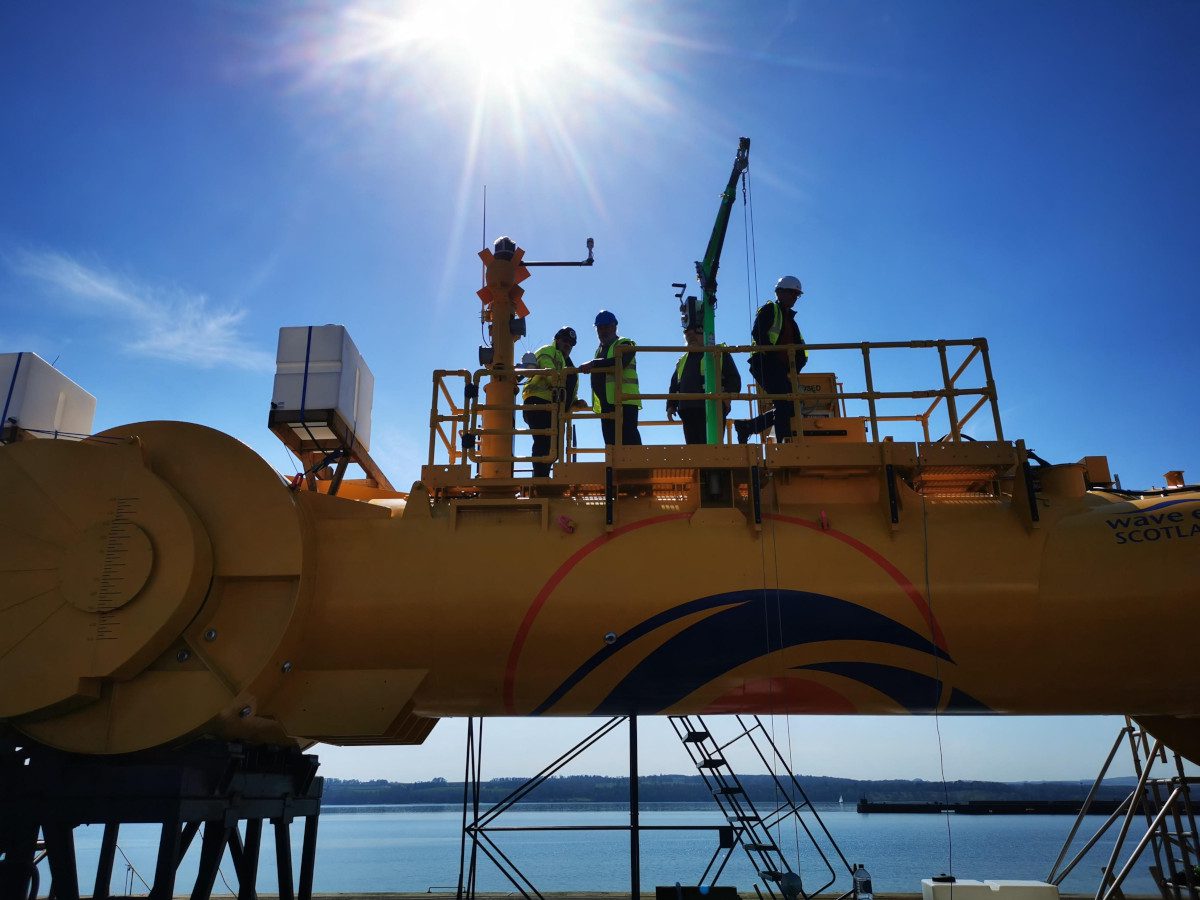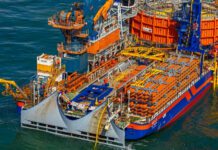
A new spinout company has developed modular generator technology the founders say could reduce the levelized cost of energy for offshore renewables by 10 to 15 per cent.
CGEN Engineering’s lightweight, stackable generator system can be easily transported to onshore and offshore wind, wave, and tidal installations, where it is assembled into a complete power system for converting mechanical energy into electricity.
In contrast with conventional systems, each module can be added, replaced or moved individually, meaning energy companies can keep operations running without long downtimes. They can also upgrade their system over time without major overhauls.
Invented by Professor Markus Mueller of the University of Edinburgh’s School of Engineering and developed by CGEN’s managing director, research fellow Dr Joseph Burchell, alongside mechanical and manufacturing engineer Mike Galbraith, the team has demonstrated the technology at scales from 10 kilowatts (kW) to one megawatt (MW).
By assessing comparative data, they have found that their technology can increase the operational life of installations by 30 to 40 per cent when compared to conventional generator systems, while reducing the lifetime operating and maintenance costs for generator installations by 50 to 70 per cent.
Dr Burchell said: “We believe our technology directly addresses the critical gaps in the UK’s offshore renewable energy supply chain. Firstly, component supply: we offer an assembly line production of modular parts, alleviating supply bottle necks while offering engineering expertise to support large-scale deployment.
“Secondly, access, operation, and maintenance: if a fault occurs, it can be bypassed until the module can be replaced, instead of requiring a complex generator system overhaul or replacement. This allows for minimum operational downtimes with improved power production revenue. It also utilises smaller infrastructure such as cranes, vessels, and transportation, significantly cutting costs and logistics complexity.
“Lastly, by extending turbine life through part replacement rather than scrapping the whole unit, we support the circular economy, bringing us closer to achieving the UK’s net zero targets.”
The UK Government has committed to doubling onshore wind and quadrupling offshore wind installations by 2030, which Dr Burchell estimates will require more than 10,000 extra turbines.
Dr Burchell continued: “We aim to collaborate closely with manufacturers and original equipment manufacturers (OEMs) to scale up the production of our technology, ultimately expanding the Scottish and UK supply chains to meet the growing needs of the sector.
“By strengthening local manufacturing capabilities, we can create a more resilient supply chain that supports the future of renewable energy, reduces dependency on imports, and contributes significantly to regional economic growth.”
Supported by Edinburgh Innovations, the University of Edinburgh’s commercialisation service, the CGEN team has been working with various companies to design and test their technology, including University of Edinburgh startup Mocean Energy, which is using CGEN technology in its BlueX wave energy converter.
Cameron McNatt, managing director of Mocean Energy, said: “The team behind CGEN has been integral in developing a modular generator that is able to meet demands to deliver power, and also withstand the harsh environment that we work within.
“CGEN was used in our Blue X prototype wave energy converter for all sea trials, including the successful 13 months of sea testing as part of the Renewables for Subsea Power project. It has demonstrated resilience and dependability throughout, and we thank the team for being an integral part of our technology development. We look forward to further collaborations moving forward.”
Dr Andrea Taylor, CEO of Edinburgh Innovations, said: “We are delighted to have supported the CGEN team through to company formation. CGEN’s technology provides a solution to several ‘pain points’ for offshore renewables and we look forward to working with manufacturers and investors to reach full commercial scale.
“It is through innovation – translating cutting- edge research into solutions to global challenges – that we will make progress in tackling complex problems like climate change.”
The CGEN team has participated in Innovate UK’s ICURe accelerator program and received support from EPSRC Impact Acceleration Account commercialisation projects. Alongside its commercial potential, CGEN Engineering is a partner within an EU Horizon project, MEGA WAVE PTO, aimed at accelerating net-zero targets.







